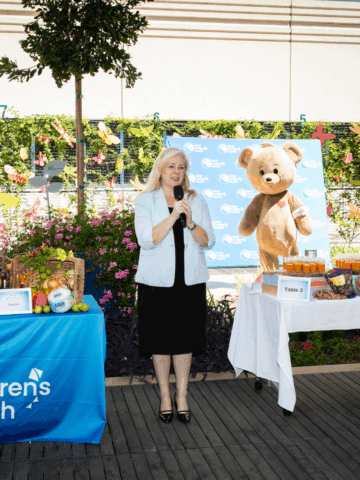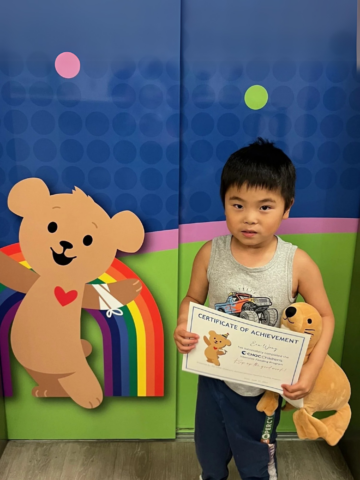“Just like constipation, diarrhea is also a common problem in children of all ages,” gastroenterologist, Dr. Mitchell Katz, says.
“There are many different causes from lactose intolerance to celiac disease to structural abnormalities to food allergies to inflammatory issues,” Dr. Mitchell Katz says. Infections are a common cause but so can dietary factors affect stooling. A common scenario is “toddler’s diarrhea” where an otherwise healthy toddler has persistent diarrhea due to excessive consumption of juice.
Diarrhea may go away by itself or it can last for days. Dr. Katz says it’s time for a parent or caregiver to seek help from a doctor if:
- The child cannot drink enough in order to maintain hydration
- There is blood in the child’s stool
- The child has other symptoms of an illness that can’t be explained
- The child appears ill
- The child has significant weight loss
- The child has a high fever
- The child has persistent abdominal pain or his abdomen is distended
“The best way to treat diarrhea is to treat the child for the underlying illness that may be associated and to keep the child hydrated”, Dr. Katz says. If the child has a bacterial infection that is causing diarrhea, the infection may need to be treated, and antibiotics may be prescribed, he adds.
Keeping the child hydrated is critical, Dr. Katz says. When a child has diarrhea, with or without vomiting, large amounts of fluid can be lost from the body. Excessive fluid loss can lead to dehydration, and when the body loses too much water, it can body functions.
The best fluid to give the child is an electrolyte solution with a small amount of sugar in it, such as a product called Pedialyte or Enfalyte, says Dr. Katz. Also, avoid giving the child milk for at least two or three days may be advisable in certain circumstances.





